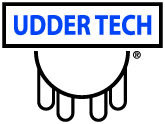“That’s easy,” said Langert, vice president of sustainability for McDonald’s. “If we don’t listen to the customer.”
No mystery there. This is a company that serves 70 million people a day at franchises located in 120 countries. So it’s a well-established fact that the customer is in the center of their orbit.
Ever since McDonald’s announced in early January it plans to start buying only sustainable beef in 2016, the beef industry has been scratching its head over just what that means.
Langert came to the NCBA convention in Nashville to say the goal is about customers and their changing habits and demands.
But if producers came to NCBA expecting to hear McDonald’s give more specifics, they came away disappointed.
While Langert did speak about the strong ties the chain has to its producers, and acknowledged that many producers are already sustainable, he didn’t offer anything written in stone.
These are the Golden Arches we’re talking about, not Mount Sinai.
Instead, that job will fall largely on a global roundtable for beef sustainability, which McDonald’s and NCBA both support. And beef producers, Langert said, need to be at the table.
Beef producers should participate for their own benefit, because it will only help beef in the long run. McDonald’s buys 2 percent of the world beef supply, and when they want you at the rodeo, you better bring your spurs.
But the pursuit of a credible definition of sustainable – largely for the consumer – has some element of risk for producers.
Langert says McDonald’s wants this debate driven by science. “Let’s remove a lot of the emotional debate out there and get good rational scientific debate.”
U.S. beef producers can applaud that. If the consumers need proof that beef is sustainable, with facts, data and measurements, it’s a challenge most ranchers are ready to meet.
But when Langert says another priority with customers is “to connect with them on an emotional level,” some in the beef industry may start growing a bit anxious.
Beef producers have embraced technology, science, data-driven research and measured results to show efficiencies.
And yet they’re routinely criticized for using those tools. Activists and ag critics, on the other hand, love it when emotion drives the discussion on food and animals.
Look no further than the recent ads from Chipotle tarring agriculture as the gulag of industrial food production.
That campaign doesn’t use a lick of science or data. Instead it uses shame, distortion and emotion to censure both producer and consumer for eating a good meal. Media analysts acknowledge that it’s dishonest – and effective.
Given McDonald’s strong ties to the food supply chain, no one would expect the company to wage a similar campaign.
But when any company’s marketing strategy targets consumer emotions, there could be a slippery slope.
Let’s hope our voices rise above the clamor for the dramatic. ![]()








